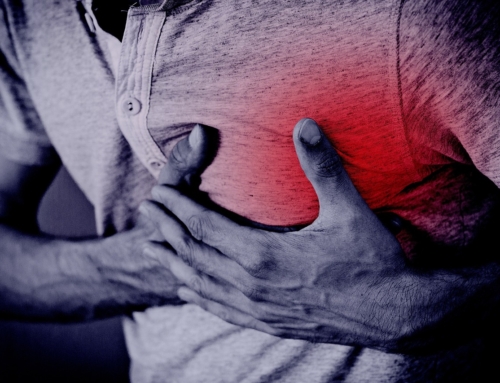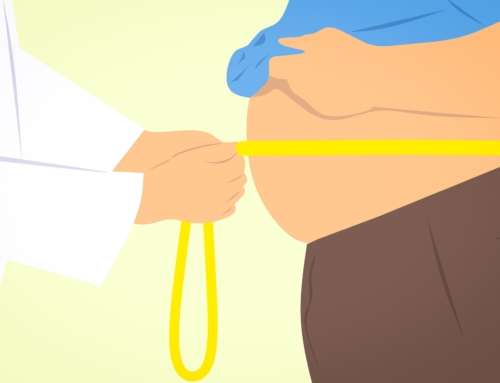Last week I discussed the risks of too much testosterone for men so now let’s look at women. There has been a huge push for testosterone in women in the last five years and is being touted for energy and libido. Advertising leads us to believe that the only reason we don’t have relationships like the one pictured is that we are all testosterone deficient. It is important to be aware of the possible side-effects before signing up though.
READ ON to explore the risks of testosterone is women…
Testosterone is a very beneficial hormone for women but the amounts we typically have pale in comparison to men. Even in our younger years we do not have high levels of testosterone and it has such variability from woman to woman it is hard to say what a real “normal” value should be. Testosterone does help with the following:
- Maintenance and growth of bones
- Increases Muscle Mass
- Decreases body fat (primarily in post-menopause women)
- Supports libido
Symptoms of low T in women are more subtle than men primarily because we don’t have as much to being with. While a variety of symptoms from dry skin, increase in body fat, bone loss can have T as part of the equation there is an entity that is called Hypoactive Sexual Desire Disorder (HSDD). Women with HSDD often have a complete lack of interest in sexual activity along with a lot of psychological symptoms like depression, fatigue, frustration, sadness, decreased self-confidence and self worth. Researchers believe this condition has more than low T as the cause but they do find T replacement does help in some instances. To make this even more difficult, there is not an exact T level that can be used to aide in diagnosis of this condition. If you think you have this condition then try T and see if it helps!
While low T can affect libido we have to remember that libido in a woman is often so much more than just testosterone. Often the lack of sex drive in a woman is between the ears, not a level of a hormone. Many instances contribute to decreased sex drive in women and I have heard all of the following: fatigue from being overcommitted, concern over the kids, he wasn’t nice to me today, I think he is cheating on me, our love life is just dull and boring, difficulty having orgasm, sex hurts from vaginal dryness, decreased sensation and many more. All of these items make it more difficult to get excited about having intercourse so work on these by doing a mental check as well as working on the physical aspects like the dryness or sensation. There are actually several things that can really help in the latter areas.
As for energy, even with low testosterone your energy should be relatively good. If you have low energy always look for other causes because low T is at the bottom of my list as a culprit when I am working somebody up for fatigue. I always consider it but want to make sure there isn’t another reason. The adrenal glands (stress gland) are often the main culprit. Just because you are in menopause doesn’t mean you will feel bad so look past the hormones for other issues. Menopause just uncovers underlying issues that were buried there all along.
Some women can be very sensitive to testosterone and side-effects can occur quickly. When T gets too high the following can occur:
- Increased hair loss on the head
- Increased hair growth on the face and everywhere else (except the head)
- Conversion to estrogen (so be aware with estrogen fed cancers)
- Irritability
- Oily skin/acne
- Possible increase in red blood cells (in very high doses)
- Possible kidney and liver issues (in very high doses)
- Heart palpitations/racing
- High blood pressure
- Deep voice
- Irregular periods
Currently testosterone is dosed in several different forms for women.
- Compounded creams: These can be delivered topically or vaginally. They are applied daily or in sensitive individuals can be tailored to meet your needs (as in three days a week, etc as well as decreasing the strength). The creams wear off very quickly so if you have any problems with side-effects it will dissipate over a few days.
- Injections are from testosterone cypionate which is not bioidentical. A typical dose for men is 100mg every 1-2 weeks so if you are using injections in a woman it needs to be a fraction of this. Injections can be intramuscular (IM) or subcutaneous (SubQ) and the effects usually wears off in a few weeks.
- Pellets are injected by a provider into your buttocks and last on average 2-3 months although I routinely see them lasting longer than this. Once these are in place you cannot remove them. Pellets provide the most consistent dosing with a peak that occurs immediately after they are placed and gradually decreases over the following months.
*Levels with the injections or pellets tend to get quite high initially and then slowly taper off.
There is no question that when testosterone levels are high women can feel on top of the world. On the flip side I have had several patients report that they felt “crazy” and irritable so to avoid this here are three tips to avoid overdosing on testosterone:
- Start with a compounded cream and make sure you can tolerate it. I have had patients with even very small doses have side-effects.
- If you need/desire more than try increasing the strength of the creams or try the injections which at least wear off in a few weeks before commiting to pellets.
- If you decide to try pellets, have the provider start with a low dose first and recheck your labs before having more pellets placed. So often, the repeat pellets are inserted after 3 months without paying attention to the levels. If the level is sky high then postpone getting more pellets until it has come down into a better range or at least ask for reduced amounts.
I think testosterone can be an added benefit to most women. I am ultra cautious with someone who has had breast cancer as testosterone can convert to estrogen. There is some speculation that testosterone might offer a protective effect with hormonal cancers but the final verdict is still not in and there are no guidelines on how much provides this effect and how much is too much.
If you have bone loss and no other risk factors then testosterone is a good choice to add to your regimen even if you do not take estrogen or progesterone. Even small doses can help support your bones.
To your health,
Laura









